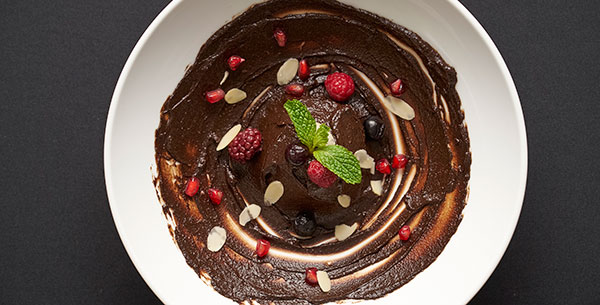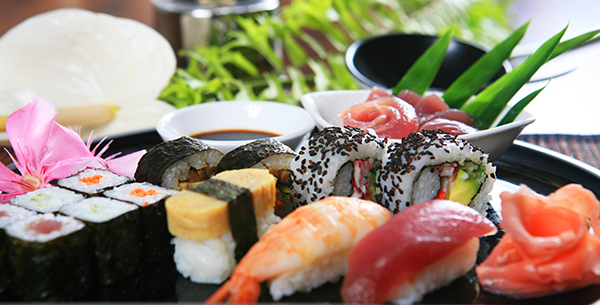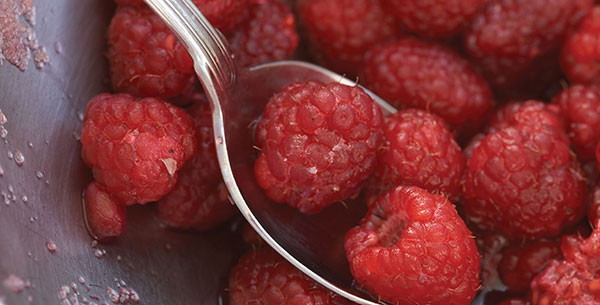Food for Thought: Nutrition Tips for Boosting Brain Health

It comes as no surprise to anyone that what you eat will largely impact your quality of life. Far too often, however, the emphasis is placed on the purported physical benefits of good nutrition; rarely is focus drawn to the effect of our feeding habits on our cognition and emotional health. Whilst not at the forefront of popular magazines or media outlets, behind-the-scenes science is developing rapidly, and studies have shown that specific foods can provide a plethora of psychological benefits, including developments in brain health, function and mental well-being. Here, we shed light on a few potential brain-boosting bites and revolutionary healthy recipe ideas that might just give you the mental makeover you require.
It comes as no surprise to anyone that what you eat will largely impact your quality of life. Far too often, however, the emphasis is placed on the purported physical benefits of good nutrition; rarely is focus drawn to the effect of our feeding habits on our cognition and emotional health. Whilst not at the forefront of popular magazines or media outlets, behind-the-scenes science is developing rapidly, and studies have shown that specific foods can provide a plethora of psychological benefits, including developments in brain health, function and mental well-being. Here, we shed light on a few potential brain-boosting bites and revolutionary healthy recipe ideas that might just give you the mental makeover you require.
1. Wholegrains
To work effectively, a brain utilises glucose, found largely in carbohydrates, as its primary source of energy. Simple carbohydrates, such as those found in sugary, processed foods, persuade a low mood by releasing the energy quickly causing sudden spikes in blood sugar, followed by excessive drops. In contrast, complex carbohydrates, such as those found in wholegrains like amaranth, chia, rice and quinoa, release the energy much slower. This provides a consistent fuelling for the brain, keeping you active and alert. Remember, healthy brains love wholegrains.
Recipe idea: Chia Pudding by Aro Ha Wellness Retreat
2. Omega-3 Fatty Acids
Being force-fed questionable tasting fish oil packets as a child was never the most pleasant experience, but our parents were onto something whether they knew it or not. Researchers believe that consuming these fatty acids, which are found in abundance in cold water oily fish such as salmon, mackerel, anchovies and sardines, enhances blood and oxygen flow to the brain, as well as nerve transmission within the brain. Impressively, studies have shown that they may protect against mood disorders such as depression and schizophrenia, lessen the effects of age-related cognitive decline, and improve memory, learning and behaviour in children. As a beautifying bonus, Omega 3 is also among the best foods for healthy skin.
3. Dark Chocolate

We’ve all experienced that joyful sensation of tucking into our favourite bar of chocolate, and studies now suggest that this may not just be due to tingling taste buds. Eating dark chocolate may actually make you feel happy, and for more reasons than one. Firstly, chocolate is a nutritional source of amino acid ‘tryptophan’, a precursor to serotonin which transmits positivity and pleasure. It has also shown to stimulate the production of feel-good endorphins, the same kind you get from exercising. Something to bear in mind though; the recommended dose is just one ounce per day, so don’t go devouring a multi-pack on our say so!
Recipe idea: Raw Dark Chocolate Tart by Amatara Wellness Retreat
4. Antioxidants
Breathing in the air around us, we are exposed to thousands of harmful toxins called free radicals. Whilst they largely go unnoticed, as the brain ages, its capacity to ward off these highly-destructive molecules declines. This accelerates oxidative stress and cell damage, contributing to increased risk of age-related diseases such as dementia and Alzheimer’s. Antioxidants, particularly Vitamin E, found largely in foods such as nuts, spinach, and oils, may have the capacity to counteract this problem by fighting the free radicals, preventing cell damage and leading to a reduction in cognitive decline.
Recipe idea: Tropical Detox Juice by Kamalaya
5. Protein
Nourish your noggin with protein sources such as chicken, turkey, or fish. A high-protein breakfast does wonders for your energy levels throughout the day as it raises your brains tyrosine levels, catalysing the production of adrenalin and noradrenaline, which leaves you feeling alert and awake. If you are vegetarian or vegan, opt for plant-based sources of protein such as quinoa, tofu, or nuts and seeds. As a society, a large number of us do not reach our daily requirements for protein, so why not try out some protein-rich snacks to make those brain gains?
Recipe idea: Sweet and Salty Cookie Dough Balls by Marbella Club
6. Potassium
Rich in foods such as bananas, dried fruits, potatoes and fennel, Potassium is an important component in electrical nerve conduction throughout the central nervous system, the powerhouse of which, is the brain. Increasing potassium intake enhances the speed at which your brain detects changes in both your external environment and within your body, increasing your reaction time, attention and general health. Potassium also acts as a powerful vasodilator, so it increases the width of your arteries, veins and capillaries, heightening the oxygen supply to the brain which can help reduce fatigue, insomnia and depression.
Recipe idea: Warm Fennel Salad by Kamalaya
Talk to one of our Travel Specialists on 0203 397 8891 or contact us here to discuss tailor-making your perfect nutrition friendly retreat.


